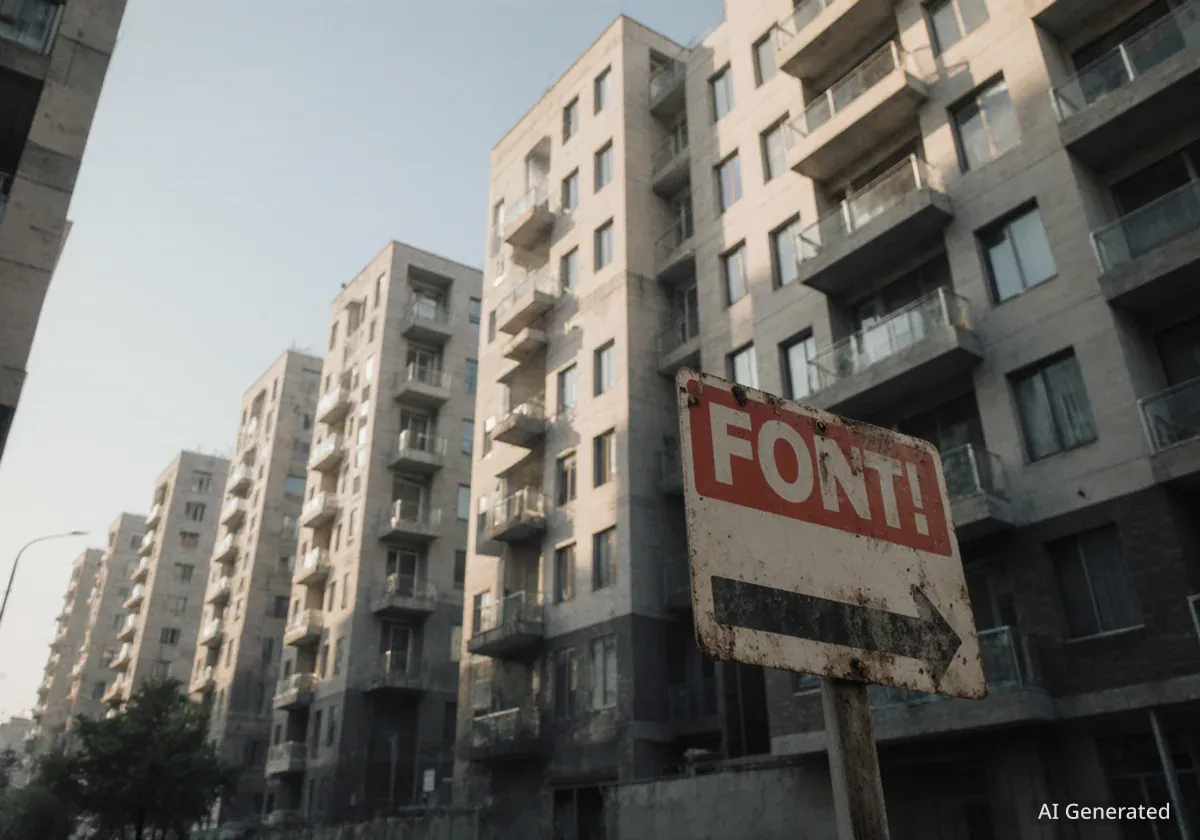Buyers of a lifestyle property in Waikato District are facing a council order to demolish their home. The property, purchased in 2022, lacks insurance and is deemed uninhabitable. Real estate professionals involved in the sale have received penalties for failing to disclose critical information about the property's condition, including roof issues and driveway access.
Key Takeaways
- Buyers purchased a property that Waikato District Council says must be demolished.
- The house is uninsurable and considered uninhabitable.
- Three real estate professionals were fined a total of $21,000 for unsatisfactory conduct.
- Undisclosed issues included roof condition, potential asbestos, and misleading driveway access.
- The buyers are currently living in a caravan on their front lawn.
Property Deemed Uninhabitable by Council
The Waikato District Council has informed the property owners that their newly purchased house must be torn down. This decision leaves the buyers with a significant problem. They cannot live in the house and cannot obtain insurance for it. The situation highlights major failures in the property sale process.
The buyers explained to the Real Estate Authority (REA) that they cannot afford to build a new home. They also stated they "paid for property which is not ours due to the driveway [to the rear of the property] not being a shared driveway." This issue emerged after the sale was completed. The family is now residing in a caravan on their front lawn.
Fact: Real Estate Authority Fines
Three real estate professionals involved in the 2022 sale were fined a combined total of $21,000. Two of these individuals were also censured for their conduct.
Misleading Information About Driveway Access
A central complaint against the real estate agents involved a misleading description of driveway access. The property advertisement stated, "A shared driveway next to the house provides access to the rear of the section and both of the sheds." This information was incorrect.
The neighbors, who share a boundary with the property, contacted the listing agency when they saw the advertisement. They clarified that there was "no shared access." They also stated that any access would require their discretion and was not guaranteed. This critical information was passed to Steven Mathis, the experienced salesperson who listed the property.
"Steven Mathis was under an obligation to make that information explicitly clear to any potential purchaser."
Real Estate Authority penalty decision
Despite receiving this clarification, the advertisement remained unchanged. The information about restricted access was not recorded in the property documents. The buyers discovered the truth about the driveway only after moving into the property and attempting to use it, at which point the neighbors informed them.
Background: Salesperson Supervision
Scott Mathis, who directly handled the sale, had only five months of experience as a salesperson. He was supposed to receive formal supervision from a qualified agent or branch manager. His father, Steven Mathis, was not qualified to provide this supervision, which the authority noted as a significant failing.
Undisclosed Roof Condition and Asbestos Risk
Another major issue was the lack of disclosure regarding the roof's condition and the potential presence of asbestos. The neighbors had specifically asked Steven Mathis if the condition of the 1950s fiber cement roof, likely containing asbestos, would be disclosed to potential buyers. They reported his response was that "it was the buyers' job to do their own due diligence."
The Real Estate Authority examined the "Property Description & Disclosure" document provided by the vendor. This document mentioned the likelihood of asbestos due to the property's age and materials. It also noted a "small leak" above a door.
The authority determined that Steven Mathis should have investigated further due to the leak. A leak could disturb asbestos, creating a "real risk to the health of any potential purchaser." This risk was not properly communicated to the buyers.
Scott Mathis told the authority he informed the purchasers that "he did not know what the roof was made of." He also said that "given the age of the roof, there was a possibility it could contain asbestos." However, the authority found this was insufficient. Scott Mathis was obligated to make his own inquiries to ensure the purchasers were fully informed of potential defects and health risks.
Penalties Issued for Unsatisfactory Conduct
The Real Estate Authority issued fines and censures to the involved real estate professionals. Steven Mathis was found to have engaged in "high level unsatisfactory conduct." He received a fine of $10,000 and was censured. The authority noted no mitigating factors in his case.
Scott Mathis was fined $3,000 and ordered to complete additional training. This training specifically focused on "Disclosure: obligations to your client and customer." The authority highlighted that Scott Mathis should have known his father was not a qualified supervisor. He should have insisted on supervision from a qualified branch manager or agent. He was not censured.
Pete Lissington, the supervisor, also faced penalties. The authority found his lack of necessary supervision led to "considerable harm." This was also deemed "high-level unsatisfactory conduct." Lissington was censured and fined $8,000. He was ordered to complete "Supervision: processes, planning and practice" training.
- Steven Mathis: Fined $10,000, censured.
- Scott Mathis: Fined $3,000, ordered to complete training.
- Pete Lissington: Fined $8,000, censured, ordered to complete training.
Other complaints, including those about a septic tank, a fireplace, a nearby transfer station, and claims that buyers were discouraged from getting a builder's report, were not upheld. The purchasers admitted they did not conduct thorough investigations before signing the contract. There was no evidence of pressure from Scott Mathis to sign the contract on the same day as viewing the property.
The case has now been referred to the Real Estate Agents Disciplinary Tribunal. The Tribunal will consider whether to issue compensation orders to the affected buyers. None of the licensees involved in the case provided comments to NZME.





